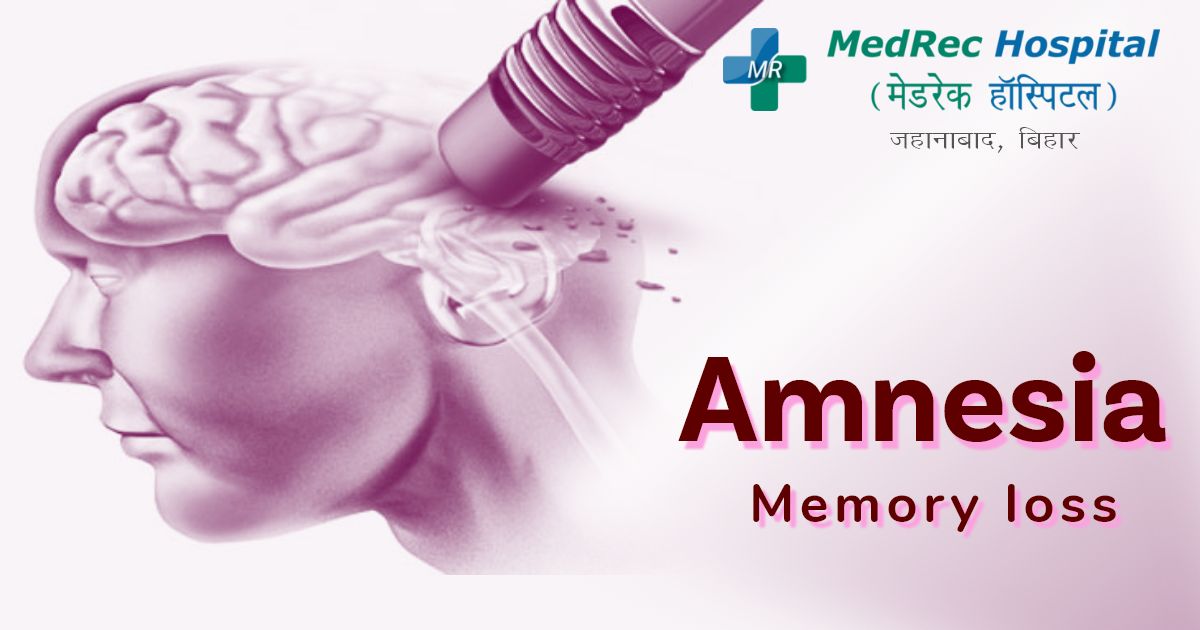
Amnesia : Prevention, Symptoms And Treatment
934
The loss of memories, including facts, knowledge, and experiences, is referred to as amnesia. Amnesia is frequently portrayed in movies and on television as losing one's identity, however this is not typically the case in reality.
Instead, those who experience amnesia, also known as amnestic syndrome, typically are aware of who they are. However, they might have trouble forming new memories and learning new information.
Amnesia can also happen if certain parts of the brain are damaged. The parts of the brain are the ones that process memories. Amnesia can be permanent, as opposed to transitory global amnesia which is a short episode of memory loss.
Although there is not a particular therapy for amnesia, the underlying problem can still be addressed. Amnesia patients and their families can live with the condition by using memory-improving strategies and receiving assistance.
Causes
Numerous brain regions are involved in typical memory function. Memory can be impacted by any brain disorder or damage.
Damage to the parts of the limbic system, which regulates emotions and memories, can cause amnesia. The system consists of the thalamus, a structure located deep inside the brain's centre. It also comprises the hippocampal formations in the brain's temporal lobes.
Neurological amnesia is the term used to describe amnesia brought on by brain damage or injury. Amnesia due to neurological reasons might result from:
- Stroke.
- An infection with a virus, such as the herpes simplex virus, may cause brain inflammation.
- The lack of oxygen in the brain. This might occur due to a heart attack, breathing problems, or carbon monoxide poisoning.
- Long-term alcohol abuse that causes the body to have too little vitamin B-1, often known as thiamin.
- Tumour in the brain
- Seizures
- Alzheimer’s disease
How to check if you have Amnesia?
Anyone who suffers from unexplained memory loss, a head injury, or disorientation needs to be seen by a doctor.
Amnesia patients may not be able to locate themselves or seek medical attention. Help someone you know who exhibits amnesia symptoms to get medical care quickly and safely.
Risk Factors
If you've had any of the following, your risk of having amnesia may be higher:
- Brain surgery, trauma to the head, or both.
- Stroke.
- Abuse of alcohol.
- Seizures.
Symptoms
Amnesia patients have these two key symptoms:
Difficulty picking up new knowledge.
Having trouble recalling recent occurrences and well-known facts.
Most amnesia patients have issues with short-term memory, which makes it difficult for them to remember new knowledge. Most likely, recent recollections will not be remembered. Deeper or farther-reaching memories might be spared.
A person's IQ, general knowledge, awareness, or attention span are unaffected by isolated memory loss. Additionally, it has no impact on identity, personality, or judgement. Amnesia patients can typically read and speak, as well as master new abilities like playing the piano or riding a bike. They could be aware of their memory issues.
Dementia is different from amnesia. Memory loss is a common symptom of dementia, but it often includes other cognitive issues that impair everyday functioning. Problems with language, judgment, and visual-spatial abilities are among these.
Another typical sign of mild cognitive impairment is memory loss. Memory and other cognitive issues are present with this disorder, though they are not as severe as those with dementia.
Other symptoms that may exist depending on the cause of the amnesia include:
- False memories that are either entirely made up or actual memories that have been lost to time.
- Confusion or a loss of direction.
Prevention
Amnesia may result from damage to the brain. It's crucial to take precautions to reduce your risk of suffering brain damage.
For instance:
- Avoid consuming a lot of alcohol.
- When riding, always wear a helmet, and when driving, always buckle up.
- To prevent infections from spreading to the brain, treat them immediately.
- If you have symptoms that might be indicative of a brain aneurysm or stroke, seek emergency medical assistance.
- These signs and symptoms include a terrible headache, numbness or immobility on one side of the body.
Treatments
Amnesia treatment focuses on methods to compensate for the memory impairment. Addressing the underlying illnesses that are producing the loss of memory is crucial.
Occupational therapy
To gain new knowledge and restore what was lost, you could collaborate with an occupational therapist. Alternately, you may base how you process new information on your still-valid memories.
Technological support
The usage of smart technology, such as a smartphone or portable tablet, is beneficial to many amnesia patients. Even those with severe amnesia can use electronic organisers to assist with daily tasks with some instruction and practice. For instance, smartphones can be set up to remind users to take their medications or remember important dates.
Medicines
Most kinds of amnesia cannot currently be treated with medications.
Complications of Amnesia
The extent and severity of amnesia vary. However, even minor forgetfulness has a negative impact on everyday tasks and quality of life. The condition can lead to issues at the workplace, in the classroom, and in social contexts.
There's a chance that forgotten memories can't be restored. Some individuals with severe memory issues require supervision or should be in a care facility.
For further information please access the following resources:
Emergency : +91 89686 77907
Front Desk : +91 98018 79584
Page last reviewed: Mar 3, 2023
Next review due: Mar 3, 2025







.jpg)
.jpg)
.jpg)
.jpg)
.jpg)
.jpg)